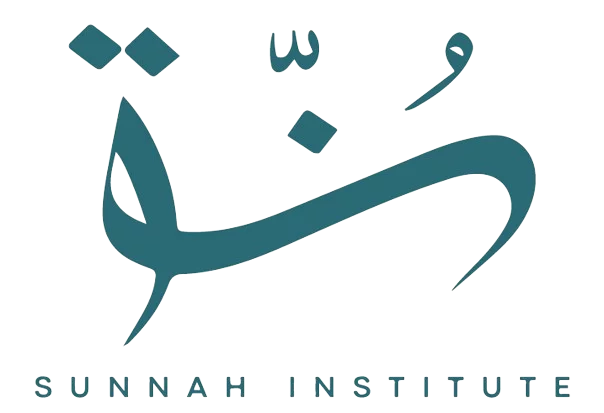Islamic Essentials Certificate
Leading to the Aalim Program
Islamic Essentials Certificate: 1 Year Program
Offered in-person
Course Description
Exclusively designed for students and working professionals to provide an overview of the fundamental elements of classical Islamic learning and spirituality.
Graduates of this course will be eligible to join the Aalim Program.
SCHEDULE
- Time Commitment:
- Classes will be conducted on the weekends to allow working men and students to manage this program along with other responsibilities
- Days: Saturday & Sunday
- Time: 7 30 am onwards
TEACHERS
- Taught by:
- Maulana Muhammad Hisham
- Shaykh Dr. Moiz Hasan
- For more details, visit: Sunnah Institute | Faculty
Course Outline
1-Qur’an Module:
Course
Description
Translation and Commentary of the Entire Qur’an
A detailed and inspiring commentary of the entire Qur’an with an emphasis on highlighting lessons that are relevant to our daily life.
The Sources & Methodology of Interpretation
Introduction to the field of Qur’anic Sciences; The Sources & Methodology for Interpretation of the Qur’an; Compilation of the Qur’an; Types & Causes of Revelation
Tafsir al-Jalalayn
Selections of the renowned Tafsir al-Jalalayn
Tafsir al-Baydawi
Selections of the renowned Tafsir al-Baydawi
2-Hadith Module
Course
Description
Introduction to the Science of Hadith
Introduction to the Science of Hadith Studies; Classifications of Hadith; Methodology & Terminologies used in Hadith
Explanation of the sayings of the Prophet (peace and blessings be upon him) in Zad al-Talibin (Provisions for the Seekers).
This classic collection of 327 hadith contains many short sayings that express a multitude of meanings, and is ultimately meant to provide today’s Muslims a glimpse at the charisma of the Prophet (peace and blessings be upon him) and a roadmap with which to achieve closeness with Allah.
Riyadh al-Saliheen (Meadows of the Righteous)
An explanation and commentary of hadith in Imam Nawawi’s classic compilation, Riyadh al-Saliheen with an emphasis on appreciating the beauty of the Sunnah as well as discover ways to implement the Sunnah in our lives
The Sublime Characteristics of the Prophet (Peace & Blessings be Upon him)
An explanation of the beautiful characteristics of the Prophet (Peace & Blessings be upon him) through selections from Imam al-Tirmidhi’s Al-Shamail al-Muhammadiya
Mishkat al-Masabih (A Niche for Lamps)
Mishkat al-Masabih is an expanded version of Al-Baghawi’s Masabih al-Sunnah by Muḥammad ibn ʻAbd Allāh Khatib Al-Tabrizi
Athar al-Tahawi
This book of the great Imam Abu Ja’far at-Tahawi is a collection of hadith related to legal judgments and divergent issues, classified by chapter of Fiqh
Sahih al-Bukhari
Compiled by Imam Muhammad al-Bukhari, the Sahih Bukhari is considered to be the most authentic collection of the teachings and sayings of the Prophet (saw). Students will cover both volumes
Sahih al-Muslim
Collection of hadith compiled by Imam Muslim ibn al-Hajjaj al-Naysaburi (rah). Students will cover both volumes
Sunan Abu Dawud
Sunan Abi Dawud is a collection of hadith compiled by Imam Abu Dawud Sulayman ibn al-Ash’ath as-Sijistani (rah). Students will cover both volumes
Jami’ al-Tirmidhi
Jami` at-Tirmidhi is a collection of hadith compiled by Imam Abu `Isa Muhammad at-Tirmidhi (rah). Students will cover both volumes inclusive of the Shamail Nabawiyya
3-Islamic Law:
Course
Description
Historical Development of Islamic Law
This course will examine the sources of Islamic law, its basic methodologies and the foundation of the legal schools through a historical analysis of the classical era.
Islamic Law I
Islamic Legal Rulings pertaining to Ritual Purification, Menstruation, Salah, Zakah, Fasting and Udhiya (Sacrifice) through Nur al-Idah (a classical text on sacred law).
Islamic Law II
Islamic legal rulings pertaining to Ritual Purification, Menstruation, Salah, Zakah, Fasting, Hajj, Commerce, Marriage & Divorce; through Mukhtasar al-Quduri (complete)
Laws of Inheritance
Laws of Inheritance from Al-Siraji Fi ‘l-Mirath Lil Shaykh Siraj al-Din al-Sajawandi al
Comparative Fiqh
Al-Hidayah: A Classical Manual of Hanafi Law – Volume 1 and Volume 2
4-Islamic Jurisprudence
Course
Description
Usul al-Shashi
Fundamentals of Islamic Jurisprudence through the classical manual “Usul al-Shashi”
Nur al-Anwar
Advanced Islamic Jurisprudence through Nur al-Anwar
5-Arabic Grammar and Language
Course
Description
Arabic Morphology
Arabic Morphology through “Fundamentals of Classical Arabic” & “From the Treasures of Arabic Morphology”
Arabic Grammar
Arabic Grammar through “Ilm al-Nahw” & “Awamil al-Nahw”
Advanced Arabic Grammar
Advanced Arabic Grammar through “Al-Hidayah fi ‘l Nahw”
Arabic Rhetoric
Arabic Rhetoric through Durus-ul-Balaghah Ma’A Shams Al-Bara’a by By Hanafi Nasif, Muhammad Diyab, Sultan Muhammad and Mustafa Tamum
Arabic Vocabulary
Arabic Vocabulary through Arabic Tutor- An English translation of Tas-heel al-Adab Fi Lisan al-‘Arab popularly known as ‘Arbi Ka Mu’allim, a well-known Arabic Grammar textbook by Maulana Abdul Sattar Khan
6-Beliefs and Creed
Course
Description
Believer’s Creed
Understand the basic tenets of our faith through Imam Tahawi’s widely acclaimed reference work on Muslim beliefs, Aqidah al-Tahawiyah.
7-Islamic History
Course
Description
Seerah
Detailed Seerah of the Blessed Messenger (Peace & Blessings be upon him)- Meccan and Medinan Periods
Lives of the Companions
Biographies of the Khulafa Rashideen (The Four Caliphs)
8-Contemporary Issues
Course
Description
Islamic Banking & Finance
This course will offer students an opportunity to understand the fundamental principles of Islamic Banking & Finance
9-Islamic Spirituality & Personal Development
Course
Description
Islamic Spirituality Essentials
Introduction to the Science of Islamic Spirituality based on the Qur’an and Sunnah
Diseases of the Heart
Symptoms & Cures of Diseases of the Heart: Anger, Jealousy, Hatred, Greed, Malice, Unlawful Love, Arrogance
Stations of Certainty
Repentance, Patience, Gratitude, Hope, Fear, Trust in Allah swt, Contentment
Islamic Etiquette & Conduct
Selections from Imam Bukhari (rah)’s Al-Adab Al-Mufrad
FAQ's
Yes, Attendance is regularly marked for the Alimah Program. In order to qualify for the Degree at the end of the program, students need to maintain at least 80% attendance (either by attending live classes or recorded lessons). Students are not penalized for ONLY listening to recordings.
Yes. Those students who wish to receive a degree at the end of the program need to appear for Annual Exams.
Recordings are available for all classes and students are not penalized for ONLY listening to recordings.
The only requirement for students wanting to enroll in the Urdu Alimah program is that they must be able to read Arabic script and write it (not necessarily fluently). Students are not expected to understand Arabic script, and slow readers are definitely welcome. Students must also be able to understand and converse in simple Urdu. Students must be comfortable using a computer and headset to listen to classes and submit their assignments.
No. We only allow listeners in the Fundamentals and Quran Programs at Maryam Institute.
Yes. The Urdu Alimah Program is for students who can converse and read simple Urdu. Students in Pakistan especially are encouraged to enroll for the Urdu Alimah Program.
The English Alimah Program is principally for those students whose primary language is English and they would like the medium of instruction to be English. The Urdu Alimah Program is for students who can converse in simple Urdu. Students in Pakistan are encouraged to enroll for the Urdu Alimah Program.
All students who understand, and are able to write in, simple Urdu.
There is no fee. All courses offered by Maryam Institute are free of charge.
This course has been designed to cater to working women, students and housewives alike, so we do understand that there may be occasions when you may not be able to attend class for genuine reasons. In such scenarios, we provide recordings so that students may catch up with the classes they have missed.

